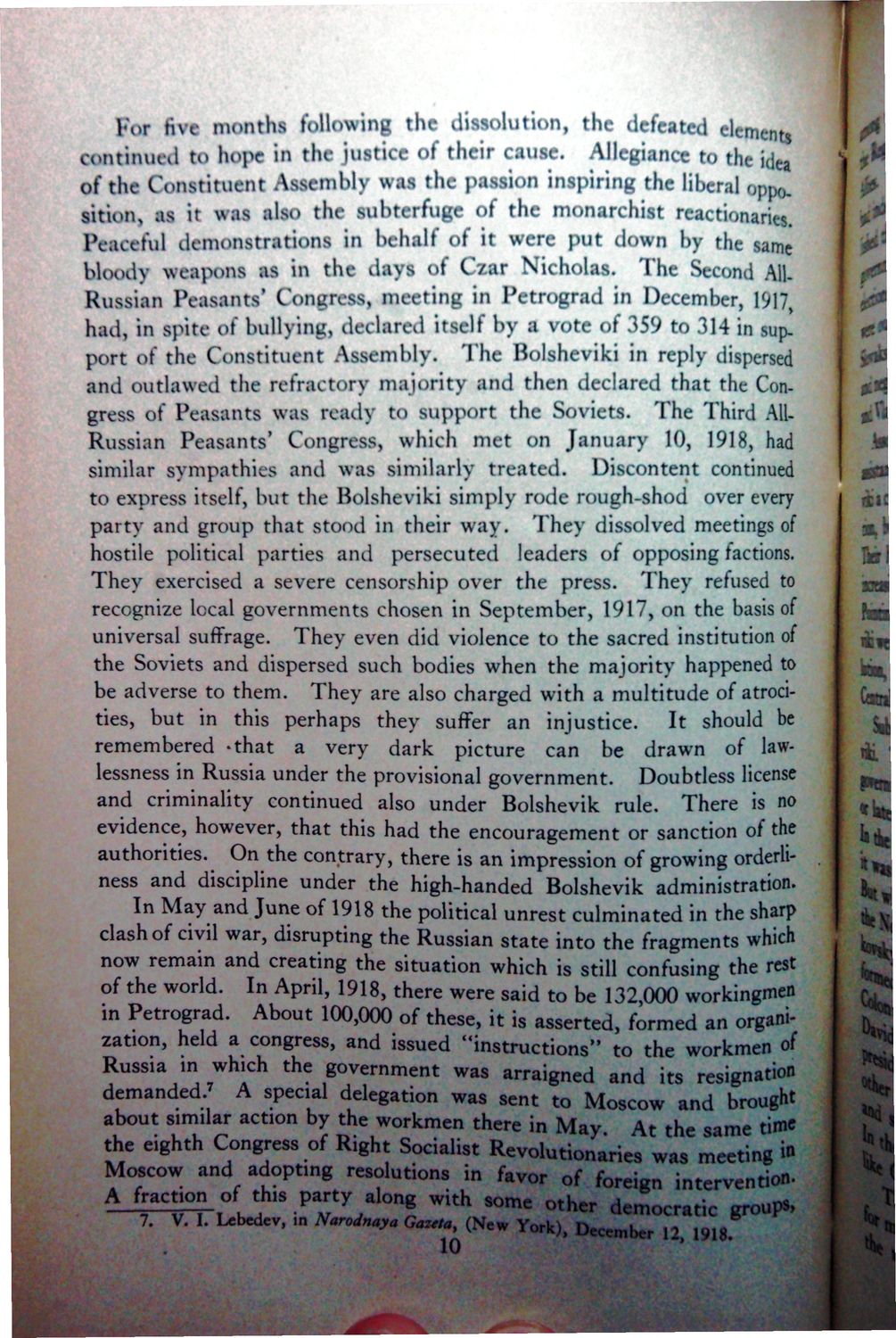| |
| |
Caption: War Publications - WWI Compilation 1923 - Article 22
This is a reduced-resolution page image for fast online browsing.

EXTRACTED TEXT FROM PAGE:
For Hvc months following the dissolution, the defeated elcm* continued to hope in the justice of their cause. Allegiance to the id of the Constituent Assembly was the passion inspiring the liberal oppo sition, as it was also the subterfuge of the monarchist reactionaries Peaceful demonstrations in behalf of it were put down by the same bloody weapons as in the days of Czar Nicholas. The Second AllRussian Peasants' Congress, meeting in Petrograd in December, 1917 had, in spite of bullying, declared itself by a vote of 359 to 314 in support ot the Constituent Assembly. The Holsheviki in reply dispersed and outlawed the refractory majority and then declared that the Congress of Peasants was ready to support the Soviets. The Third AllRussian Peasants' Congress, which met on January 10, 1918, had similar sympathies and was similarly treated. Discontent continued to express itself, but the Holsheviki simply rode rough-shod over every party and group that stood in their way. They dissolved meetings of hostile political parties and persecuted leaders of opposing factions. They exercised a severe censorship over the press. They refused to recognize local governments chosen in September, 1917, on the basis of universal suffrage. They even did violence to the sacred institution of the Soviets and dispersed such bodies when the majority happened to be adverse to them. They are also charged with a multitude of atrocities, but in this perhaps they suffer an injustice. It should be remembered -that a very dark picture can be drawn of lawlessness in Russia under the provisional government. Doubtless license and criminality continued also under Bolshevik rule. There is no evidence, however, that this had the encouragement or sanction of the authont.es. On the contrary, there is an impression of growing orderliness and discipline under the high-handed Bolshevik administration. In May and June of 1918 the political unrest culminated in the sharp clash of civil war, disrupting the Russian state into the fragments which now remain and creating the situation which is still confusing the rest of the world In,April 1918, there were said to be 132,000 workingmen in Petrograd. About 100,000 of these, it is asserted, formed an organization, held a congress, and issued "instructions" to the workmen of ^ZZZ r A J FZV 8 <* " d ^s resignation demanded' A special delegation was sent to Moscow and brought about similar action by the workmen there in May. At the same time the eighth Congress of Right Socialist Revolutionaries was meeting in Moscow and adopting resolutions in favor of fZl • JL g ,ntervcnt, n A fraction of this party along with s o m T t n , ° ° K me o £ 1 xr t t k A • KT J e r democratic jrroups* w , o c r a n c rouF 7. V. I. Lebedev, in Narodnaya Gazeta, (New Yoria n " » » v cw iork), December 12, 1918. W nment WaS arrai ne
| |